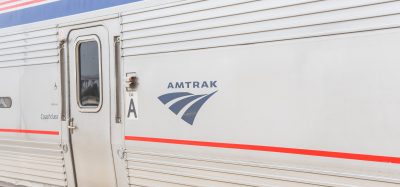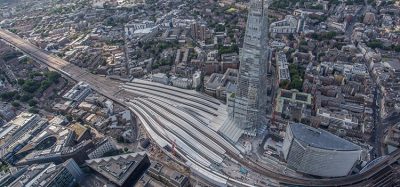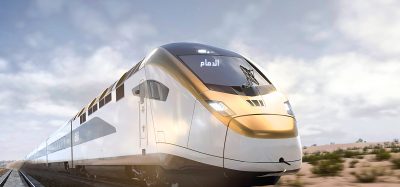OFF THE RAILS: Worldline’s Martin Howell
Posted: 27 March 2024 | Emily Budgen | No comments yet
This week’s ‘Off the Rails’ features Worldline’s Martin Howell, who I interviewed at Transport Ticketing Global 2024, earlier this month.


I’m here with Martin Howell from Worldline. I would like to get your opinion on what a unified ticketing scheme would mean for passengers.
A unified, simplified, and fair fare system (I use those words deliberately), would mean the difference between failure and success. If we’re to get people out of their cars and using public transport, we have to take a number of actions. We have to integrate them better and we have to make it easy to understand what services are available – how do I pay for them, and then how do I access them? The easier you can make it for people to understand what services are available, the more likely you are to have people coming to you, to use your services.
At the moment, it’s very complicated. You know, lots of us think that things like split ticketing are a great innovation – but the fact is, it shouldn’t be a feature. That should be something that we have already hidden in the back office and is a given.
That should be something that’s offered to people without them even having to think about it. If there is a way of offering a cheaper service, offering a less expensive ticket, we should be doing that anyway. I think there is a fundamental problem in our attitude to customers: we treat them as passengers, who have no choice but to use our services, rather than as customers who most certainly do. Could you imagine going to John Lewis and as soon as you walk in the door an announcement booms out saying “we think there’s a possibility that some of you in this store are going to try and steal something, and we’re warning you not to do that on a pain of a big penalty”? You’re not going to have many customers after a while, are you? And yet we hear something similar every time we get on a train.
We’ve got this wrong attitude with our customers. People now expect simplicity. They expect ease of access to information; that’s come from Netflix and Amazon, where you find what you want, quickly swipe, and it arrives.
The railway has got to catch up and do the same. We’ve got to make it as easy as possible to understand “what are the options available to me? Are they guaranteeing the best price? And will I be able to access them, and will they be reliable?” – a simple, unified approach to ticketing, right across the country – wouldn’t that be great. It’s a significant problem that we could easily address.
I definitely want to delve into the evolution of the passenger, and how they need to be reframed as customers. Now, however, you touched upon this briefly, in your opinion what is the current state of the railways, either in the UK or globally?
Our railways could be a national treasure. They’re certainly a national infrastructure asset of critical importance, and they’re not being treated that way. Unfortunately, right now, the way they’re being treated by the government is as a cost to be managed rather than an investment in social wellbeing and economic growth.
As an industry – operators, supply chain, everyone – we have got to work together to make the case more clearly to the government, that if you allow us to run this railway with sensible investment from government and a confident private sector, we’ll do it more efficiently, and at a better price.
I do understand that there’s a lot of government money going into the industry, but if you want the private sector to be involved, give them the freedom to do what they do. You asked what is the state of the nation at the moment? I think the state of the rail network, and industry, is best described as demoralised. Part of the reason for that is there’s no vision for the future. There’s no clarity on what we are trying to get to because we’re not sure what the destination is.
I think we need a long-term vision for the railway. We need to start investing in it properly and have clarity as to private ownership. Is it going to be publicly owned? Should Labour come to power, as seems likely, what does bringing the railways into public ownership really look like?
Rail also has to be integrated with other modes of transport and that’s where payment comes in – certainly from Worldline’s perspective. Worldline makes it easy, as we are doing with a major combined authority, for everyone to be able to understand, access and pay for rail and bus services, as well as modes like e-scooters. It’s easy to see which modes are available for your journey, so you can make your own choice about which you wish to use, with a single payment all taken care of in the back office.
The back office is where all the magic happens! It enables the single payment for the multiple modes to be collected and then the management of discounts, capping, mobility credits, sales commissions, tax and refunds to be managed. Automating these capabilities means the authorities don’t have to manage themselves and means operators are confident they’ll receive their revenues promptly. Plus the platform is scalable as more and more people use the service.
Wouldn’t it be fabulous if we could do that on a national basis?
I think we should also aim to break the stasis that exists at the moment, whereby we’ve recovered a certain number of customers (since the pandemic), but people still use railway because they have to, not through choice.
That’s why we’re advocating for not just free rail travel, but free public transport for under eighteens. If you can create the habit of using public transport in young people, by giving it to them at no cost to them, and then maybe step-up fares as they get into their twenties to a point where they’re well established, then you’re going to create a whole generation who believe that public transport is for them. Currently, as The Economist showed two or three years ago in a study, rail is a predominantly middle-class mode of transport. We’ve got to change that. We’ve got to integrate it properly with our bus network and show people there’s an alternative to being in their cars – and then price it properly.
Pricing rail travel is a critical question, because it’s only right that, if we are investing in rail as a nation, everybody should be able to access it without prohibitive costs.
The Social Market Foundation found that if people outside London had access to the same integrated transport network links as people in the capital, four times as many jobs would be available to them, and one and a half million people would be lifted out of poverty instantly. Surely that’s a no-brainer. Why would you not do that? Think of the benefits: less stress on an over-burdened health service because people are likelier to be happier with better mental health, and a reduced burden on the state because fewer people will be forced to claim benefits. In time, surely it would pay for itself.
That would be phenomenal. You touched upon this, talking earlier about Netflix and Amazon and their approach to customer service, do you think there should be more collaboration between industries?
Yes, and with a clear purpose as to why we’re doing it. I think we do ok at the moment, but I think if you were to ask what collaboration we really need, it would be the need to collaborate better with other modes of transport.
Why don’t we as an industry team up with our other modes, including private modes such as Uber, and then work out what data we could really use? How do we get people to trust us with their data? How do we use that data to deliver better services? Where are our trains? How often do they need maintenance? So, a partnership with a trusted AI provider, a trusted data analyst would be a perfect way of collaborating with a new partner. Now, I don’t know whether that collaboration is happening already, but if it is, there’s not much evidence of it.
I think the world of AI is really opening in the rail sector. GRR published a news article a couple of weeks ago about Northern’s introduction of AI for BSL announcements. We could use this technology and data to make transport more accessible and alleviate any worries that passengers might have.
Absolutely. One thing that really frustrates people and makes them think “I’m not doing this – it’s just more delays” is that if there’s a delay, they don’t know why. Being constantly told, by an automated message, that “they’re very sorry for the disruption which has been caused by an incident” – truly, that’s no good to anybody!
Worldline is moving the dial on customer information – we are able to provide customers with reasons for delays, whether their train is on the move and exactly where it is. That’s how you build trust. Likewise, the more information you can give passengers about how full the service is, the better. We’re making progress as an industry, but we could be doing better.
So, this year, 2024, is Global Railway Review’s thirtieth anniversary, its pearl anniversary. Do you have a pearl of wisdom for us or the rail industry?
It’s time to get radical with transport!
More Like This
OFF THE RAILS: GBRTT’s Emily Lightowler
OFF THE RAILS: Amtrak CEO Stephen Gardner
OFF THE RAILS: Austrade’s David Fisken
OUT NOW: The Definitive Guide to Rail’s Digital Future
The rail industry is undergoing a digital revolution, and you need to be ready. We have released our latest market report, “Track Insight: Digitalisation.”
This is not just another report; it’s your comprehensive guide to understanding and leveraging the profound technological shifts reshaping our industry. We move beyond the buzzwords to show you the tangible realities of AI, IoT, and advanced data analytics in rail.
Discover how to:
- Optimise operations and maintenance with real-time insights.
- Enhance passenger services through seamless, high-speed connectivity.
- Leverage technologies like LEO satellites to improve safety and efficiency.
Featuring expert analysis from leaders at Nomad Digital, Lucchini RS, Bentley Systems and more, this is a must-read for any rail professional.
Related topics
Apps, Artificial Intelligence (AI), Cargo, Freight & Heavy-Haul, Conferences & Events, Digitalisation, Freight, Operational Performance, Passenger Experience/Satisfaction, Passenger Information Systems (PIS), Passengers With Reduced Mobility (PRM), Rail Fares/Ticket Pricing, Smart/Contactless Ticketing, Standardisation & Technical Harmonisation, Sustainability/Decarbonisation, The Workforce, Timetabling/Scheduling
Related organisations
Amazon, John Lewis, Labour Party, Netflix, Northern, The Social Market Foundation, Uber, Worldline








